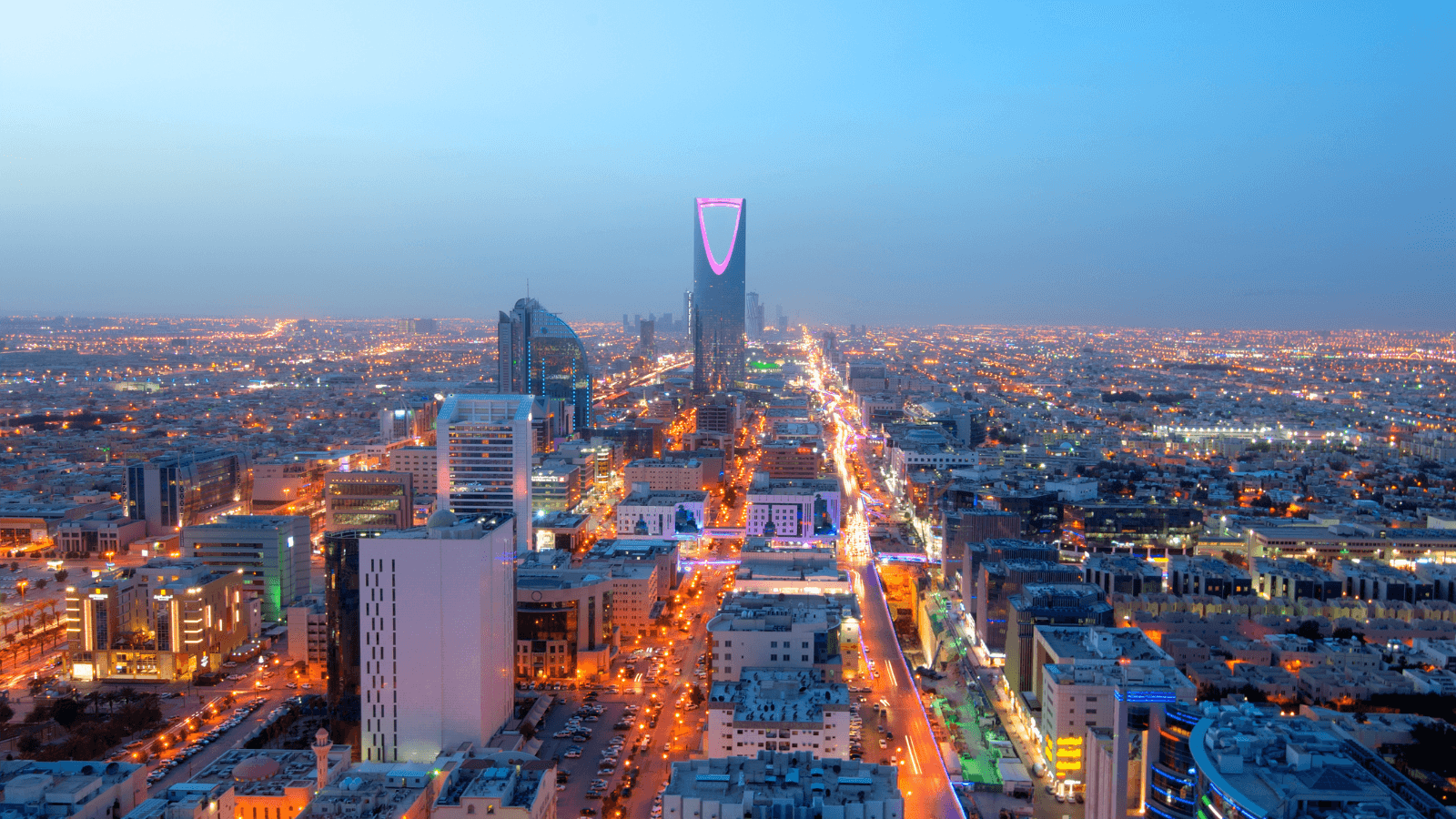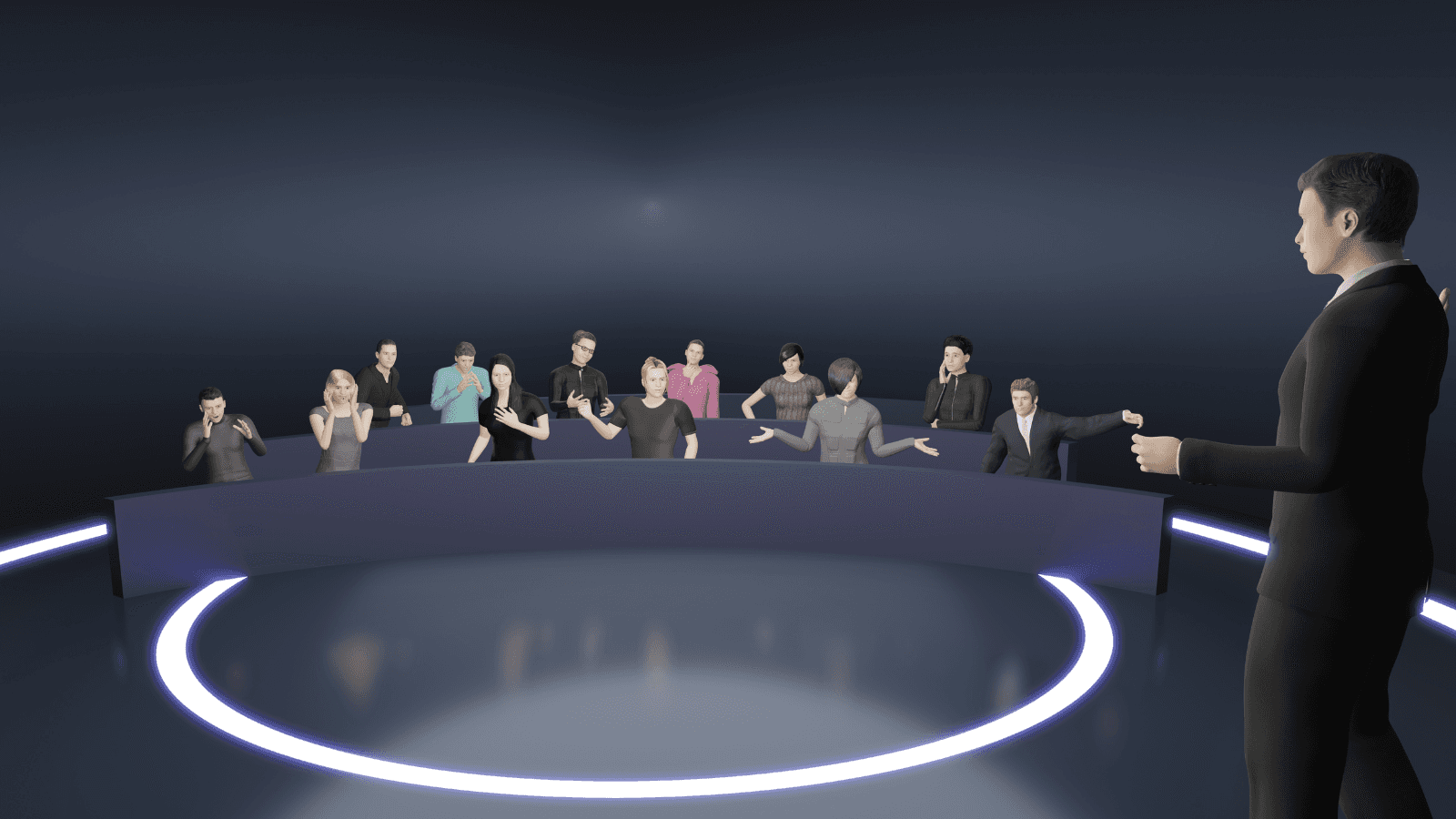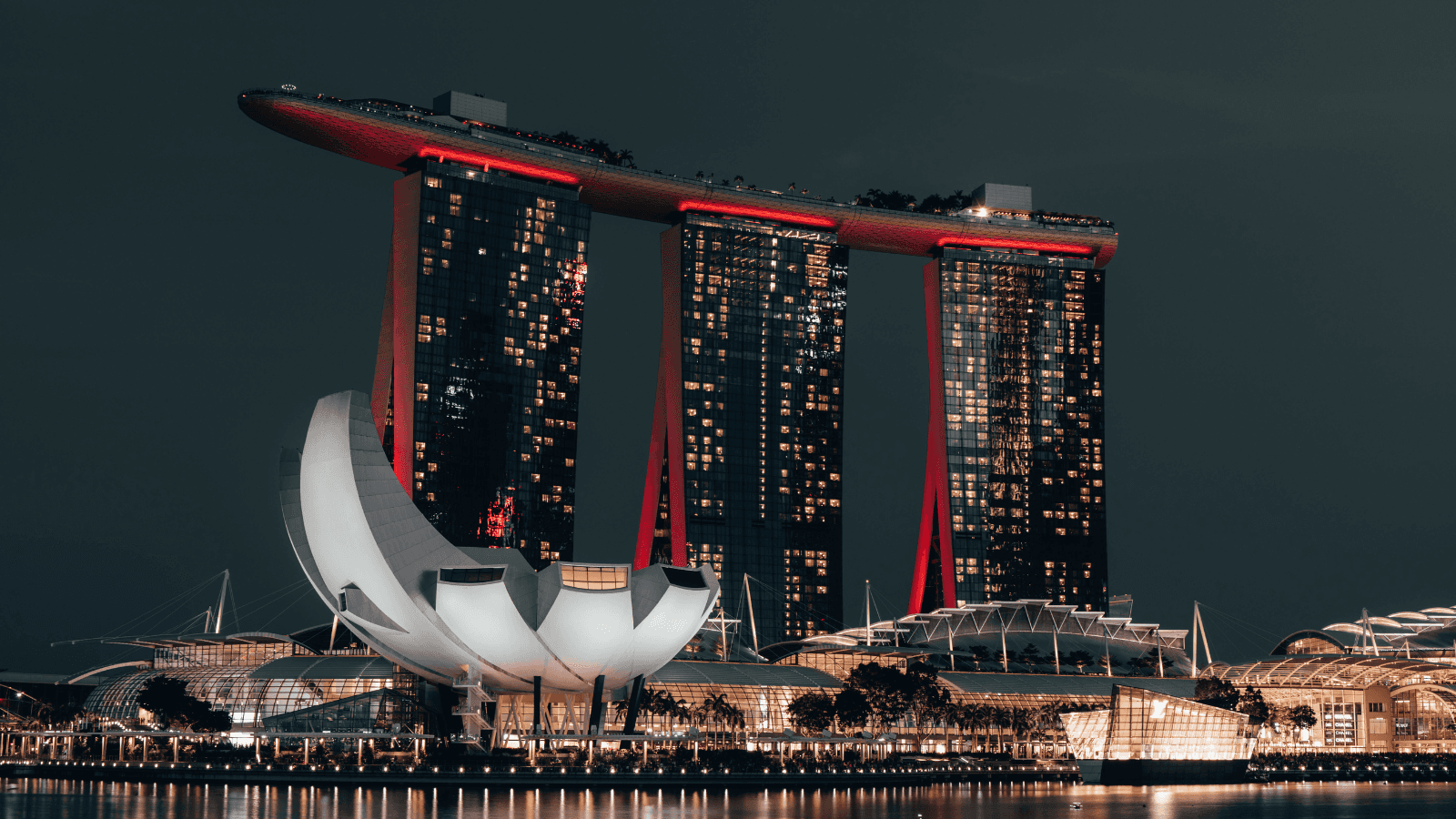Back to Blog
Advancing Metaverse Adoption in the MENA Region
Sep 29, 2023
Callum Moates
Blurring the lines between virtual worlds and reality, the metaverse or the 3D internet creates digital spaces that governments, businesses, and creators can embrace to offer product services and build relationships. As of 2023, this new digital frontier is growing rapidly, with projections indicating that the global metaverse market will soar to $936.57 billion by 2030, as estimated by Grand View Research. This growth is underscored by significant investments globally, especially from the computer and IT sectors (17%), education (12%), and finance (11%), as published by Sortlist in 2022.
With its economic and geopolitical importance, the Middle East and North Africa (MENA) are poised to play a pivotal role in the 3D internet's evolution. One of the region's strengths lies in its youthful and tech-savvy demographic, likely among the early adopters of metaverse technologies. Economically, as countries in the region seek avenues beyond traditional oil and gas sectors, the digital realm of the metaverse offers a promising new direction.
The metaverse potential in the MENA region
With its rapid technological adoption, the Middle East and North Africa (MENA) are well-positioned to be significant players in the metaverse landscape. The evolution of web3 and the influence of Gen Z have reshaped how brands and organizations operate and connect with customers, especially in the 3D internet, and the MENA region has been quick to take advantage. A publication by Campaign Middle East states that the metaverse could contribute up to $360 billion to MENA's GDP in the next decade. Companies are aligning their strategies with the region's rising influence in the metaverse, with 94% of marketing decision-makers viewing it as a promising avenue and 77% planning to experiment in this channel soon, as published in a Donnelley & Sons Company report.
The 3D internet is opening up opportunities for the MENA region across industries like travel and tourism, e-commerce, and education. MENA's efforts in the metaverse are evident through entities like Warba Bank in Kuwait, the first Islamic bank to enter the metaverse, and Qatar University, the first university in the region to establish its presence within the 3D internet. Retailers like IKEA in Jordan are also embracing virtual technologies through their ‘Virtual Reality Experience’ that allows customers to take 360° virtual store tours, customize rooms, and even virtually checkout.
Here are a few trends driving metaverse adoption in MENA:
Young demographic: More than half of the population in MENA is under 30, as per research published by the OECD. This demographic is more inclined to adopt new technologies, making them potential early adopters of metaverse platforms. The MENA region’s demographic also has a strong desire to express themselves and create content on virtual platforms, which opens up avenues for metaverse diversification across industries.
Growing interest in gaming: The gaming industry in the MENA region is one of the fastest-growing globally, with projections indicating a market value of $5 billion in the next two years. The Middle East, in particular, is witnessing rapid growth in gaming, bolstered by advancements in 5G technology and the rising popularity of tools like augmented reality (AR), virtual reality (VR), and mixed reality (MR). With the metaverse offering the next level of gaming experiences, there's already a built-in audience eager to use extended reality technologies.
Increasing adoption of immersive technologies: The GCC (Gulf Cooperation Council) region is predicted to see a sizable growth in AR and VR adoption, with the market projected to grow at a CAGR of 39% between 2023 and 2028, as estimated in a report published by MarkNtel.
Establishment of innovation hubs: Several countries in the MENA region, such as the UAE and Saudi Arabia, are investing heavily in technological innovation, creating hubs and incubators to foster startups and tech ventures. Saudi Arabia, for instance, is investing a staggering $1 billion in cyberspace-related projects, aiming to position itself as a global tech hub. Introducing the Vision 2030 plan in 2016, Saudi Arabia aspires to evolve into a leading global investor and center for innovation. Similarly, Dubai has rolled out a metaverse strategy to transform the city into one of the top 10 metaverse economies globally. This strategy emphasizes technological innovation across tourism, real estate, education, retail, and government services.
The potential economic impact of the metaverse across MENA immense, with projections suggesting that by 2035, the metaverse could add between $20.2 billion to $38.1 billion to Saudi Arabia's GDP and US$8.8 billion to $16.7 billion to the UAE's GDP. These figures underscore the metaverse's vast economic potential for the MENA region, promising growth, job creation, diversification, and innovation.

Business opportunities
The MENA region is leveraging the vast potential of the metaverse, with countries like Saudi Arabia, the UAE, Egypt, Morocco, and Jordan taking the lead, as highlighted in a report by Meta and Deloitte titled "The Metaverse and Its Potential for MENA." The metaverse, a 3D virtual shared space, offers businesses many entrepreneurial opportunities across these countries by offering the ability to create virtual storefronts, immersive experiences, and even monetize digital real estate, paving the way for a new commerce era. Businesses can also connect with consumers globally through more engaging interfaces within the 3D internet.
Entrepreneurial opportunities in the metaverse within the MENA region are vast:
Metaverse-driven startups: With the rapid digital transformation in the region, startups can leverage the metaverse in various emerging sectors, from virtual tourism to digital real estate. The Dubai World Trade Centre has even launched a metaverse incubator to capitalize on startup opportunities in the space. For instance, ColossalBit, a consultancy specializing in web3, created MetaTerrace, a restaurant and lounge in the 3D internet where individuals can connect and socialize as avatars.
Virtual marketplaces: Diverging from conventional e-commerce platforms like Amazon or eBay, virtual marketplaces like Decentraland, CryptoVoxels, and The Sandbox are at the forefront of digital commerce. In Decentraland, for instance, users can purchase, develop, and sell parcels of virtual real estate. Individuals can also visit virtual stores on the platform to buy digital clothing and accessories for their avatars.
E-commerce innovations: The metaverse can elevate the e-commerce experience by integrating augmented reality (AR) and virtual reality (VR) technologies. This integration can allow users to try products virtually and attend virtual fashion shows to experience a product before making a purchase. For instance, Magnati-MetaV, a marketplace in the metaverse, allows Middle Eastern e-commerce and retail brands across sectors like fashion and groceries to showcase their products so consumers can interact with them and then make purchases.

Education and Skill Development
With its immersive capabilities, the 3D internet has the potential to transform education and skill development. According to an article titled "How the Metaverse Can Transform Education" by Meta, the metaverse offers a unique sense of presence that traditional 2D technologies cannot provide. This presence is crucial for learning as it fosters interaction, discussion, and experiential understanding. Research has shown that VR can enhance comprehension, knowledge retention, student engagement, attention span, and motivation, as reported by Meta.
Here are a few ways the metaverse can be leveraged for education in MENA:
Virtual classrooms: The 3D internet offers an enriched classroom experience, enabling students to interact and engage with lecturers in a shared virtual space. Qatar University partnered with Metavisionaries to join the metaverse, marking a pioneering step in digital education. Professor Rana Sobh, Dean of the College of Business and Economics, delivered a keynote on the university’s space curricula in the metaverse, making it an immersive learning experience.
Language learning: The metaverse can elevate traditional language learning platforms through immersion-based teaching. In Germany and Austria, GoStudent is transforming language learning through VR. Their GoVR platform transports students to virtual environments, allowing them to interact live with native-speaking tutors and peers from different regions.
Vocational training: The metaverse revolutionizes vocational training by offering immersive 3D environments to practice skills and role-play situations. It provides a platform for risk-free simulations, especially for high-risk tasks, ensuring safe practice. With global accessibility, students from anywhere can access standardized training modules. Furthermore, the adaptability of the 3D internet ensures tailored training scenarios, making it relevant to specific needs. A survey by PwC revealed that individuals trained through VR were 275% more confident to act on their learning than those who learned in traditional or e-learning environments.
The metaverse holds transformative potential for addressing educational challenges in the MENA region. It can bridge disparities by offering standardized educational experiences regardless of location and overcoming language barriers through real-time translations. Furthermore, the 3D internet provides immersive environments for practical training, caters to special needs education, and promotes lifelong learning while being cost-effective. In essence, the metaverse can revolutionize the educational landscape of the MENA region, ensuring inclusivity, engagement, and innovation.

Case Studies in MENA Metaverse Adoption
Yas Island Metaverse
A prominent attraction in the UAE, Yas Island has a variety of shops, restaurants, theme parks, and sports facilities. The creation of Yas Island Metaverse in Roblox aims to launch a virtual twin of the physical location to allow visitors to access entertainment and leisure activities like riding the rollercoaster at Ferrari World or experiencing driving on an F1 track. This initiative highlights the opportunities the 3D internet creates for entertainment hubs and sports companies to reach audiences in new ways and create new channels for revenue generation.
e& Universe
In October 2022, e& (formerly Etisalat Group) conducted a soft launch for its virtual world ‘e& Universe’ developed in partnership with HTC. The universe is being built with plans to eventually offer opportunities for individuals to purchase non-fungible tokens (NFTs) and digital assets and attend virtual events like sports and concerts. The platform offers two key elements: Etisalat by e& and Metaverse Service. Etisalat by e& is a virtual retail and shopping experience. Metaverse Service is a social networking feature where users can interact as avatars and indulge in entertaining activities like listening to K–pop music. The e& universe is pioneering the creation of immersive social experiences in the metaverse and new business opportunities for organizations to leverage in this 3D space.
Virtual Black Stone at the Kaaba
The "Virtual Black Stone Initiative" allows religious tourists to virtually touch the Hajr Aswad, Makkah's Black Stone, at the Kaaba. This project was initiated during the COVID-induced lockdowns to remove physical constraints, promoting virtual tourism. Initiated by Sheikh Dr. Abdulrahman bin Abdulaziz Al-Sudais, the General President for the Affairs of the Grand Mosque and the Prophet's Mosque, this initiative is a collaboration between the Agency for Exhibitions and Museums Affairs and the Custodian of the Two Holy Mosques Institute for Hajj and Umrah Research at the University of Umm al-Qura. This initiative showcases the ability of the metaverse to preserve historical and cultural sites while making them accessible to a global audience.

Conclusion
The MENA region stands on a solid foundation to harness the transformative potential of the metaverse, offering appealing prospects to enhance education delivery, business operations, and entrepreneurship opportunities. The 3D internet can democratize access to global education, provide innovative business models, and build new industries for innovators to disrupt. As the digital and physical worlds converge, stakeholders in the MENA region must invest and champion the advancement of metaverse technologies, ensuring the region remains at the top of this digital frontier.
Are you an individual, organization, or government body looking to enhance your operations through digitalization? We can help you build, scale, and monetize your project in the metaverse. Get in touch with us!
Sep 29, 2023
Callum Moates
Subscribe to our monthly newsletter
About Landvault
Landvault is building infrastructure to accelerate the metaverse economy, by building tools to create, deploy and monetize content. The company has helped over 200 clients enter the metaverse, including both Fortune 500 companies and government organizations like the Abu Dhabi government, Mastercard, L’Oreal, Red Bull, and Heineken. The company has raised a total of $40m over the past three years and continues to pioneer technological advancements.
